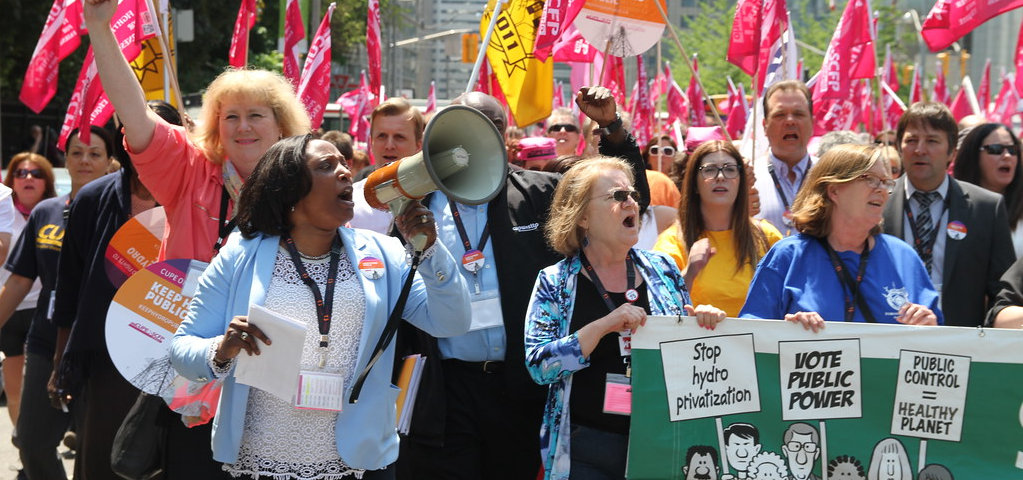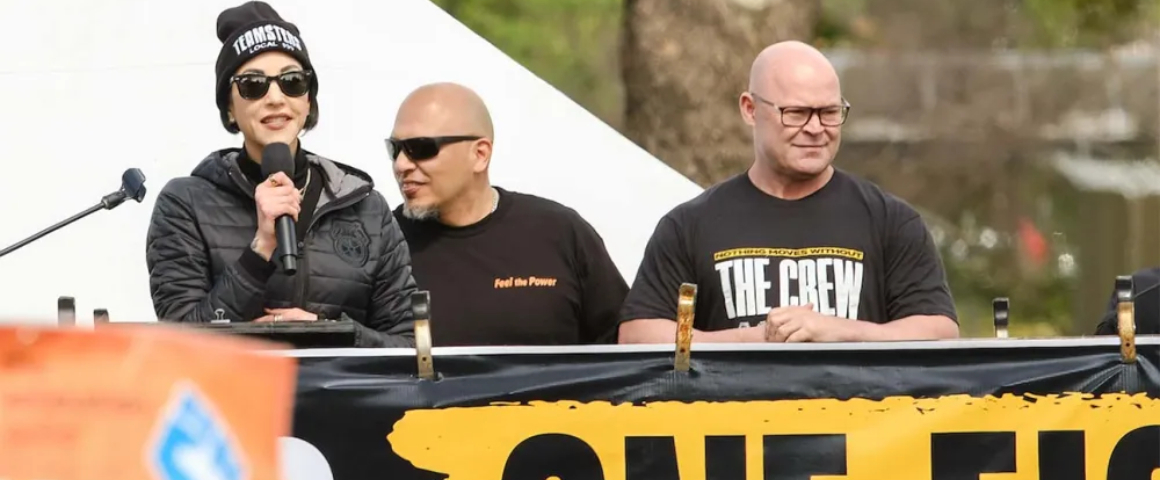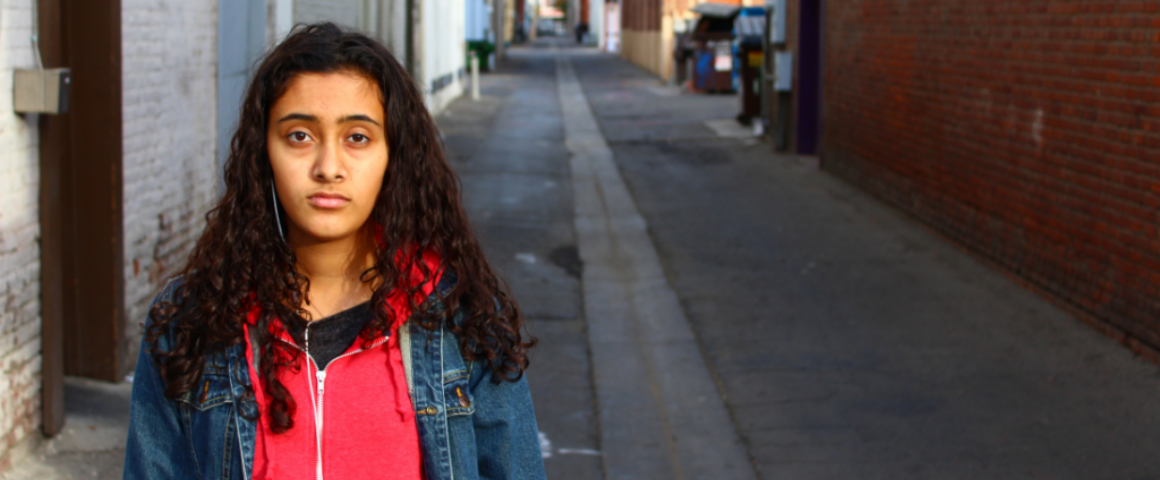Janice Folk-Dawson is Vice President of the Ontario Federation of Labour (OFL), former president of the Guelph and District Labour Council and former president of Canadian Union of Public Employees (CUPE) Local 1334. People’s Voice contributor and longtime labour and feminist activist Helen Kennedy spoke with her as part of our analysis of the labour movement and the fight for women’s equality.
Helen Kennedy: We’ve seen the pandemic have horrendous impacts on working women across Ontario, across Canada, across the world. In what ways have women borne the brunt of this pandemic?
Janice Folk-Dawson: What the pandemic has exposed is that the women who actually have their voices at the table aren’t those front-line working-class women. They’re that elite one percent. How can this recovery be in any way workable for working-class women? Those who have been forced to go into their workplaces are, sadly, marginalized and racialized women.
Capitalism already devalues the work of racialized women. The pandemic has forced them to take on the extra responsibilities in the home – the extra work of childcare, eldercare, homeschooling. That results in working longer hours, seven days a week. There’s no balance.
I’ve heard women say “I’m failing grade two” as they try to homeschool their children. I’m really worried about their mental health. It’s killing us – sending women into their workplaces without proper protective equipment. They’re killing us. Women need to join together and cry out “not one more sister.”
HK: Women’s participation in the workforce has hit 30-year lows. It’ll take a long time to recover. What does this do for the struggle for women’s and gender equality? Can we even think about getting there without comprehensive and decisive government intervention?
JFD: As the labour movement, we need to ask, “does this structure work?” It doesn’t. You and I have been at conventions fighting for gender equality and it’s been women lined up at the con mics. We have a divide in the labour movement because we’ve set up a capitalist structure that obviously needs to be re-examined.
However, I’m pretty hopeful. I see being able to meet on Zoom as the silver lining. Yes, it takes out some folks, but it’s given access to so many people. I ran as a working-class feminist on a platform to activate committees and labour councils. I’ve been doing outreach, going to different unions, telling them they don’t want to miss out on this new type of organizing. More women and racialized women are getting involved in these committees. We’re giving them the opportunity to participate in the conversation. The labour movement needs to listen to them. They’re the ones that are driving the economic engine.
Those committees are now giving advice to the executive board on issues like pensions, women in the trades and economic recovery. We need to rebuild the labour movement to ensure that the voices of women and racialized women are around the table.
Government intervention should be directed by labour and the working class. It’s not a compromise and labour must be the driving force. The women in the labour movement need to make sure that their perspective and needs are met in that intervention.
HK: What about the issue of childcare? It’s the perfect time to put pressure on the government for a universal public childcare program. Is the OFL addressing this question?
JFD: We are, and in fact we’re taking it a step further. We’re looking at the public education system from cradle to post-secondary. Women experience inequities throughout. And when did we ever, as a society, have the conversation that we’re only going to fund kindergarten to grade 12? And that we’re only going to fund white settler schools. We will be pulling together, over the next month, an education assembly that brings together all the players from cradle to post-secondary – all workers, parents, students, community groups. Now is the time, [because] this system is not working. We need to mobilize to ensure that all those voices have a place at the table.
HK: Nora Loreto says in her new book, Take Back the Fight, “the success of any regrouping of feminist organizations in Canada today depends on whether or not decolonization can become a central part of how feminists understand gendered oppression in Canada.” She also goes on to say, “there should be no debate that patriarchy, colonialism and capitalism are the forces, when mixed together, that firmly keep different women down in different ways.” Do you think it’s possible for the women’s movement to rebuild itself based on this premise? Is there unity there?
JFD: I hope there’s unity there. I’m thankful that our racialized comrades have had enough. They’re going to push it. It’s now incumbent on those of us who are prepared to use our space to raise their message – or better yet, step back and give them a place.
I am also very hopeful as I watch Indigenous women getting involved. I’ve had some conversations at 1492 Land Back Lane through the council of clan mothers. It’s imperative that we set up a forum for all women to learn from each other.
HK: That’s interesting because it was women who began Idle No More, who decided that they weren’t going to take it anymore. That organization has injected a lot into our understanding of colonialization and what it means. We need to learn, but it’s not their responsibility to teach us. Can you tell us a bit about organizing with 1492 Land Back Lane?
JFD: The clan mothers make sure that there’s a role for everyone, from children to the elders. Everyone is on equal footing. If the children are in the circle, they’re part of the conversation and their perspective is important. Before they go to the barricade, where the police are, everyone sits in the circle and talks about how they’re going to be protected and what they’re going to witness. Everyone watches because the clan mothers have talked it all out and they know where they’re going. It’s like what we should do when watching what our picket captain says. They all know to watch and to follow the lead of the clan mothers – even children.
Second thing that I’ve learned from Land Back is that when you listen, you have to listen to understand, not to reply. We as white folks think we have to have the right answer – that’s how our whole education system works as well. You’re only allowed to have the right answer, you’re not allowed to fail, you’re not allowed to think outside the box. The best thing I’ve learned is that you don’t have to have the answers, you need to listen to understand, not reply, and to work it out together.
We call things “difficult conversations,” say “it’s too political” or “we can’t go down that road.” It doesn’t matter whether it’s difficult or not, if you don’t have that conversation or that discussion, lives are at stake. Sadly, the Indigenous community has been living like this ever since colonization. We’re just understanding that now.
Every decision is about the life and death of workers, as people, of our earth, where we’re going and for future generations. That’s the most important thing that we have to learn as the labour movement. We are the stewards of all of our members. We are the stewards of the workers.
HK: Let’s talk about women in labour leadership. Marching in an anti-war demo years ago, we used to chant “Take the toys away from the boys!” and a brother would chant “And Margaret Thatcher, too!” Even if you have women in leadership, it doesn’t mean that you have a leader who is progressive. How do we get away from identity politics and elect leaders on an action program of social unionism that will fight for peace and against colonialism?
JFD: Seems like we have to create a place to figure that out. We’ve fallen into the trap of electing leaders the same way for years. We should look at how Indigenous groups do it. They identify who could do the job and those people talk and decide among themselves who will do it. Wouldn’t it be wonderful if women could sit down as a group, identify a couple of key positions we wanted women to run for, then identify women who would be good in that role? Then we could put resources into electing them into those positions.
I remember when I was in NAC [National Action Committee on the Status of Women], we elected a young leader and then didn’t stick around to support her and six months later she resigned.
HK: That’s like the story of Jean-Claude Parrot, who was elected to the Canadian Labour Congress (CLC). It was one of the first times the Action Caucus was successful at getting a candidate elected. He laments that just after he was elected, the Action Caucus fell apart. Do you think there’s a role for the Action Caucus to play, now that it’s back together, in the OFL that’s coming up in the fall and the CLC next year? Can we get together to get a progressive program that goes beyond legislation to mobilize people to fight on women’s issues?
JFD: The Action Caucus is where I learned – both in Newfoundland and Labrador and here in Ontario. It’s imperative that those in leadership roles ensure there’s space at our meetings for progressive voices. It’s the working class that needs to drive the union leadership. It’s when union rank and file have defied the leadership that we’ve had the greatest changes. I fully expect that to happen any day. I’m hopeful.
HK: I’m hopeful too, but we’ll probably have to wait until a few more people are vaccinated. Will you be running again for the OFL?
JFD: I’m having an absolutely incredible time. I’m mobilizing labour councils and we’ve been pushing back, organizing regionally. We’ve been doing webinars called “Building Power in Our Communities” which began with Labour Councils and CUPE Councils. Then we added all CUPE Ontario committees and OFL committees and now everyone is coming. We’re looking at the topic of defunding police and now Labour Councils across Ontario are talking about it locally. It’s workers who are participating in these discussions. We’re working to ensure that labour’s voice is heard in the community.
If folks like the work I’ve been doing, I’d love to do that for another two years.
[hr gap=”10″]
Get People’s Voice delivered to your door or inbox!
If you found this article useful, please consider subscribing to People’s Voice.
We are 100% reader-supported, with no corporate or government funding.




